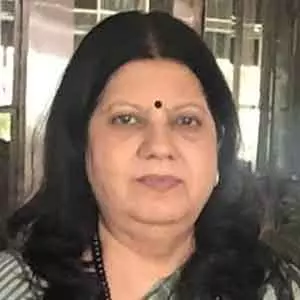Live
- Pakistan Protests: PTI Supporters March Towards Islamabad, Demanding Imran Khan's Release
- Additional Collector Conducts Surprise Visit to Boys' Hostel in Wanaparthy
- Punjab hikes maximum state-agreed price for sugarcane, highest in country
- Centre okays PAN 2.0 project worth Rs 1,435 crore to transform taxpayer registration
- Punjab minister opens development projects of Rs 120 crore in Ludhiana
- Cabinet approves Atal Innovation Mission 2.0 with Rs 2,750 crore outlay
- Centre okays Rs 3,689cr investment for 2 hydro electric projects in Arunachal
- IPL 2025 Auction: 13-year-old Vaibhav Suryavanshi becomes youngest player to be signed in tournament's history
- About 62 lakh foreign tourists arrived in India in 8 months this year: Govt
- IPL 2025 Auction: Gujarat bag Sherfane Rutherford for Rs 2.60 cr; Kolkata grab Manish Pandey for Rs 75 lakh
Just In

x
Highlights
Modi Can’t be Ignored, Political Challenge of Modi, Hindustan Times Leadership Summit. His statement, according to political observers, is an admission that Modi is a force to reckon with but the party should not lose its sense of self-confidence. “I am one of those who take our critics seriously,” he remarked.
New Delhi: Prime Minister Manmohan Singh on Friday said that the Congress could not be complacent in dealing with Bharatiya Janata Party’s prime ministerial candidate Narendra Modi, who according to him, should be taken seriously. He was replying to a question on how the Congress is taking the political challenge of Modi.
Speaking at the Hindustan Times Leadership Summit, the Prime Minister said that the party was confident about Assembly election results and also the Lok Sabha elections. “ The Congress is going to polls with the spirit of self-confidence. We should not confuse that with the outcome of Assembly polls, he said.
His statement, according to political observers, is an admission that Modi is a force to reckon with but the party should not lose its sense of self-confidence. “I am one of those who take our critics seriously,” he remarked.
Manmohan Singh, for the first time perhaps, has paid handsome tribute to the late former Prime Minister, P V Narasimha Rao, who actually brought him into politics in 1991 and appointed him as the Union Finance Minister in the government formed after the tragic assassination of former Prime Minister Rajiv Gandhi.
Manmohan Singh said, “Under the leadership of Prime Minister Narasimha Rao, we took momentous decisions both with respect to our economic policies and with respect to our foreign policy. Narasimha Rao launched what has come to be known as India’s Look East Policy, linking India to the new growth engines of Asia. We liberalised our trade and investment rules to help us re-integrate with the global economy. In doing this, we were inspired by the experience of many East and South-East Asian countries.”
The Prime Minister recalled that he entered the world of politics in the midst of a crisis. In 1991, India was confronted by two challenges on the external front. There was an external payments crisis, coupled with even bigger challenge – the breakdown of the global bipolar order. “As Finance Minister in 1991, I had to worry not only about reducing the fiscal deficit and reviving economic growth, but also about stabilising the rupee and ensuring access to adequate foreign exchange. The latter challenge was rendered particularly acute on account of the shifts in global power balances as a result of developments in the former Soviet Union and Eastern Europe,” he said.
Since then, India has faced multiple challenges on the external front. But whether it is dealing with sharp escalations in food and energy prices, or the Asian financial crisis in 1997-98 and the Trans-Atlantic financial crisis in 2008-09, or the rise of China as a global mega-trader and changing power balances in the global and regional trading regimes, “we have managed to protect India’s core economic and foreign policy interests,” he said. This ability to deal with the challenges of globalisation and build new bridges with a range of countries has helped India emerge as a global player, he said.
The Prime Minister underlined that through all the ups and downs in the face of global challenges and despite the burden of past policy mistakes, the economy is on a rising growth trajectory. However, he underscored the point that economic growth, social change and political empowerment have brought in their wake the new aspirations of an entirely new generation of Indians. This has contributed to growing impatience for faster growth and even better quality of life. These aspirations and ambitions are exerting pressures on governments to deliver more, perform better and be more transparent and more efficient. “A Revolution of Rising Expectations is underway and I welcome it,” he declared.
Rejecting the criticism levelled by Modi against the Prevention of Communal Violence Bill, the Prime Minister asserted that it was not an election gimmick. Notwithstanding the vehemence with which the BJP had been opposing the Prevention of Communal Violence Bill, the Prime Minister signalled the need for such a law, which was conceived in the wake of the Gujarat communal holocaust in 2002 and whose importance was reinforced in the backdrop of the recent Muzaffarnagar riots.
The Prime Minister said, “We have seen communal unrest in many parts of India. It is a Bill whose time has come. We can take pride in protecting all members of communities. This Bill takes care of aberrations.”

Next Story
More Stories
ADVERTISEMENT
© 2024 Hyderabad Media House Limited/The Hans India. All rights reserved. Powered by hocalwire.com







